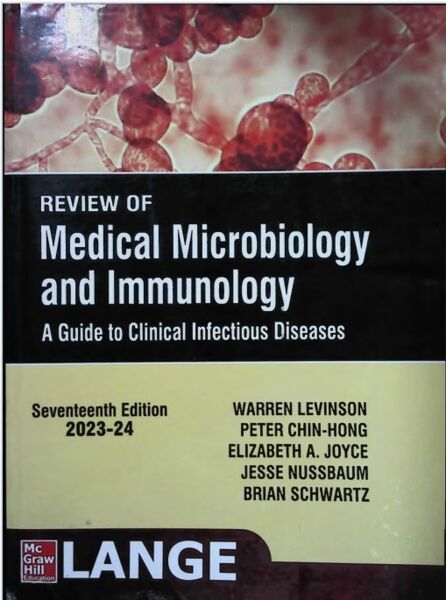Kitob ta'rifi
The agents of human infectious diseases belong to five major groups of organisms: bacteria, fungi, protozoa, helminths, and viruses. Bacteria belong to the Bacteria domain, whereas fungi (yeasts and molds), protozoa, and helminths (worms) are classified in the Eukarya domain. Bacteria, fungi, and protozoa are unicellular or relatively simple multicellular organisms In contrast, helminths are complex multicellular organisms Viruses art noncell ul ar and therefore are quite distinct from the other organisms
 O'zbekcha
O'zbekcha

